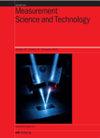A meticulous covariance adaptive Kalman filter for satellite attitude estimation
IF 3.4
3区 工程技术
Q1 ENGINEERING, MULTIDISCIPLINARY
引用次数: 0
Abstract
Aiming at the problems of model errors, non-Gaussian noise and measurement anomaly in the spacecraft attitude estimation system, this article proposes an improved adaptive filtering method based on covariance matching, which solves the problems of simultaneous dynamics model error and measurement model error in the attitude estimation system, and at the same time, effectively reduces the effects of non-Gaussian noise and large outlier situations occurring in the vector measurement sensor. Firstly, an adaptive filtering algorithm based on the innovation sequence estimation covariance is investigated under the framework of multiplicative extended Kalman filtering (MEKF), which is used to correct process noise covariance, then the Sage-Husa adaptive Kalman filtering (SHAKF) method is combined to correct the measurement noise covariance, and finally the meticulous covariance adaptive multiplicative extended Kalman filter (MCA-MEKF) is designed. the proposed algorithm uses both innovation and SHAKF methods to correct the two covariance matrices simultaneously. Several attitude estimation simulation scenarios are set up to simulate the proposed algorithm in the presence of model errors, non-Gaussian noise, and large outlier. The simulation results demonstrate that the proposed algorithm outperforms the conventional algorithms in terms of estimation accuracy and robustness.用于卫星姿态估计的精细协方差自适应卡尔曼滤波器
针对航天器姿态估计系统中存在的模型误差、非高斯噪声和测量异常等问题,本文提出了一种基于协方差匹配的改进型自适应滤波方法,解决了姿态估计系统中同时存在的动力学模型误差和测量模型误差问题,同时有效降低了矢量测量传感器中出现的非高斯噪声和大离群情况的影响。首先,在乘法扩展卡尔曼滤波(MEKF)框架下研究了一种基于创新序列估计协方差的自适应滤波算法,用于修正过程噪声协方差,然后结合Sage-Husa自适应卡尔曼滤波(SHAKF)方法修正测量噪声协方差,最后设计了细致协方差自适应乘法扩展卡尔曼滤波(MCA-MEKF)。所提出的算法同时使用创新和 SHAKF 方法来校正两个协方差矩阵。设定了几种姿态估计仿真场景,在存在模型误差、非高斯噪声和大离群值的情况下对所提出的算法进行仿真。仿真结果表明,所提出的算法在估计精度和鲁棒性方面优于传统算法。
本文章由计算机程序翻译,如有差异,请以英文原文为准。
求助全文
约1分钟内获得全文
求助全文
来源期刊

Measurement Science and Technology
工程技术-工程:综合
CiteScore
4.30
自引率
16.70%
发文量
656
审稿时长
4.9 months
期刊介绍:
Measurement Science and Technology publishes articles on new measurement techniques and associated instrumentation. Papers that describe experiments must represent an advance in measurement science or measurement technique rather than the application of established experimental technique. Bearing in mind the multidisciplinary nature of the journal, authors must provide an introduction to their work that makes clear the novelty, significance, broader relevance of their work in a measurement context and relevance to the readership of Measurement Science and Technology. All submitted articles should contain consideration of the uncertainty, precision and/or accuracy of the measurements presented.
Subject coverage includes the theory, practice and application of measurement in physics, chemistry, engineering and the environmental and life sciences from inception to commercial exploitation. Publications in the journal should emphasize the novelty of reported methods, characterize them and demonstrate their performance using examples or applications.
 求助内容:
求助内容: 应助结果提醒方式:
应助结果提醒方式:


